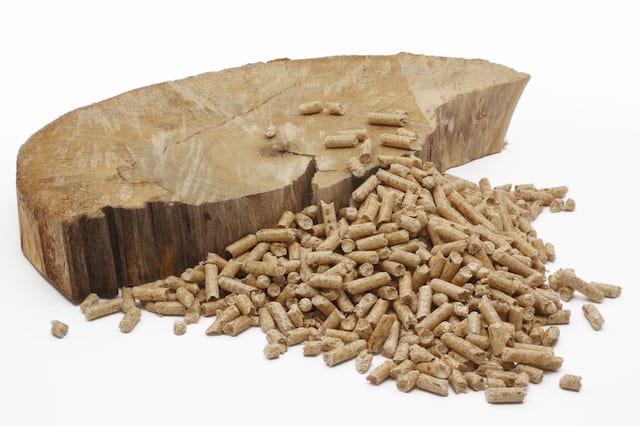This is a question I hear from time to time among smokers looking to transition to pellet smoking from more traditional smoking methods. Whether they’ve used logs or wood chips, or a combination of each to smoke their meats, many smokers are used to the idea of soaking their wood before smoking. But when it comes to pellets, is soaking really the best thing to do?
As a general rule, you should avoid soaking your pellets. Pellets are made with compressed sawdust, which means soaking them will cause the sawdust to expand and fall apart. Not only will soaking pellets ruin your smoke, but they could also damage your pellet smoker.
So, when it comes to pellets, soaking is not advised. But if you’re still unconvinced, understanding what smoking pellets are might help to shed some light on why pellets and water don’t get along. If you’re curious about this, as well as what the benefits of pellets over more traditional smoking woods are, keep reading!
What are Smoking Pellets?
Smoking pellets are a compressed wood byproduct called sawdust. As opposed to traditional wood products used in smoking, pellets are engineered specifically for the task of smoking meats. Because each pellet is the same size and is made with the same amount of sawdust, they burn consistently and more slowly than wood. Pellets also have a consistent smoke point, meaning that they start smoking at the same time.
What does all this mean? Well, for one, it means that pellets are reliable and consistent. Using pellets takes the guesswork out of smoking. You use the same amount of pellets for every smoke, and the temperature for your smoke is the same each time.
Best of all, because pellets are engineered for the specific task of smoking, they require nothing extra from the smoker to perform their job perfectly. This includes soaking.
Why Not Soak?
The sawdust used to make pellets is very dry. During the manufacturing process, moisture is extracted from the sawdust to ensure that as much of it can be packed together as possible. If that sawdust is introduced to water, it will begin to expand. At best, this expansion could ruin your smoke by making your pellets burn inconsistently. At worst, soaking could cause your pellets to swell in the fire pot, making a mess, or potentially ruining your smoker altogether!
The good news is, pellets take soaking out of the equation. When you’re using pellets in your smoker, you no longer have to worry about whether or not you should soak to ensure the best smoking experience.
Using Wood Chips Vs. Pellets
If despite the benefits of pellets, you remain convinced that soaking is essential to achieving quality smoke, you may want to stick with more traditional wood products, like wood chips.
The debate among the smoking community over whether or not you should soak your chips is ongoing. But one thing is certain, soaking wood chips won’t ruin your smoker. However, there are drawbacks to choosing chips over pellets.
- Inconsistent: Smoking with wood chips can be a guessing game. Unlike pellets, the size, shape, and thickness of woodchips vary from one chip to the next. This makes smoking very uncertain. No matter how good of a smoker you are, when it comes to using chips, it’s impossible to predict how they will respond to the flame.
- Flavor: While some smokers swear by wood chips, they can impart a bitter flavor into your meat. Again, this is due to inconsistencies in the chips. Some pieces will char quicker than others, producing a less than ideal smoke for flavoring your meat. Certain impurities can also be found in wood chips, such as bark, which can also give your meat an unwanted flavor. When you smoke with premium pellets, these impurities aren’t an issue.
- Quantity: On average, it takes far more wood chips to smoke your meat than it does pellets. You’ll also go through wood chips much faster. Constantly taking trips back to the store and lugging around big bags of wood chips can be a hassle. Going through so many wood chips can also put a significant amount of wear and tear on your smoker.
- Cost: While wood chips may be cheaper by the pound, don’t be deceived. On average, you’ll burn through wood chips much faster than pellets. In the end, you won’t be saving much money by going with chips over pellets.
- Ash: Wood chips create ash and lots of it. Ash buildup can become a concern when smoking your meats for a long time. Because pellets burn more efficiently, they produce much less ash.
This isn’t to say that wood chips are all bad. Smoking with woodchips can have its advantages too. Because wood chips don’t burn as consistently as pellets, they tend to ignite in bursts which can impart more natural wood flavors into your meat. These flavors will depend upon which types of wood you choose to use, but if you want a little more character in your meat, chips may be the way to go.
Choosing You Pellets
If avoiding the hassle of soaking sounds good to you, then you’re going to love what pellets have to offer.
While pellets don’t need any special care or attention, there are a few things to keep in mind if you want to get the most out of your pellet smoker.
- Quality: There are different grades of pellets to consider before you buy. While cheaper pellets save you money, they burn quicker than higher-grade pellets. One of the big advantages pellets have over wood chips is their slow burn time. If you buy pellets that burn at a faster rate, you aren’t taking full advantage of what your pellet smoker has to offer.
- Added Chemicals: As opposed to wood chips, Pellets are a manufactured product. This means that, in addition to sawdust, some pellets could also contain added chemicals. While these chemicals are food-safe, they could potentially impart unwanted flavors into your meats. If it’s a natural, wood-smoked taste you’re after, try to stick with Pellets with the highest wood-to-chemical ratios.
Scot has loved smoking food in his free time for the last few years. Each major holiday or off-weekend, Scot spends days testing and prepping new recipes for perfection.

